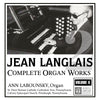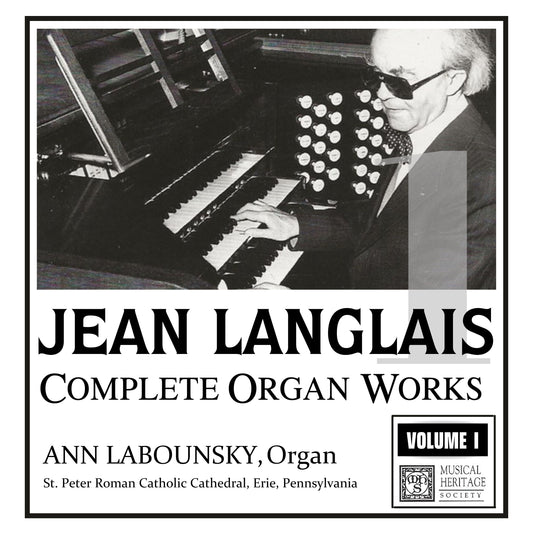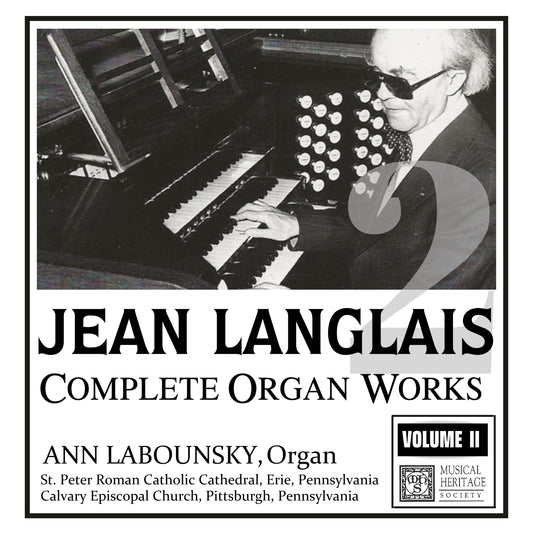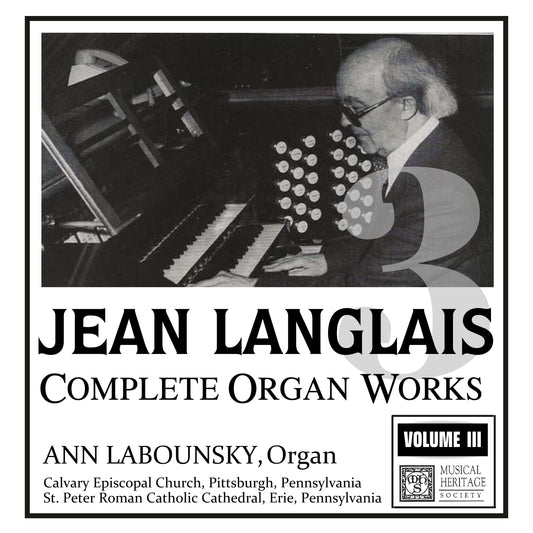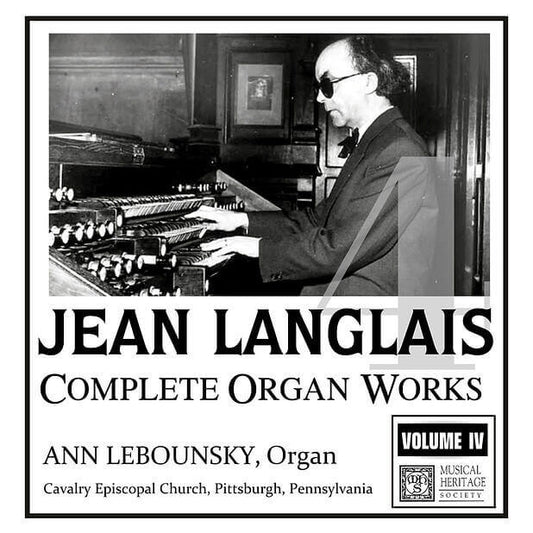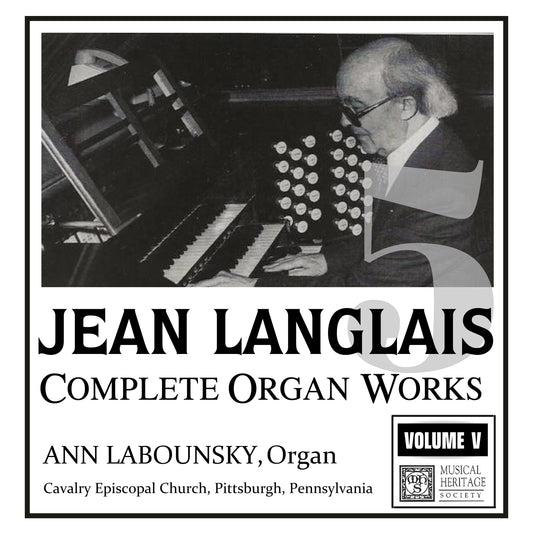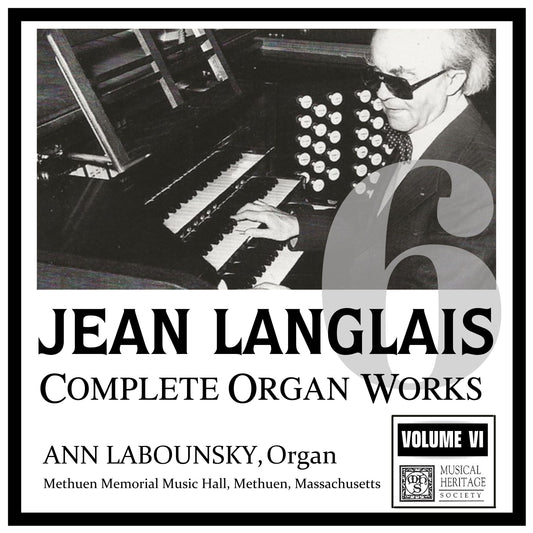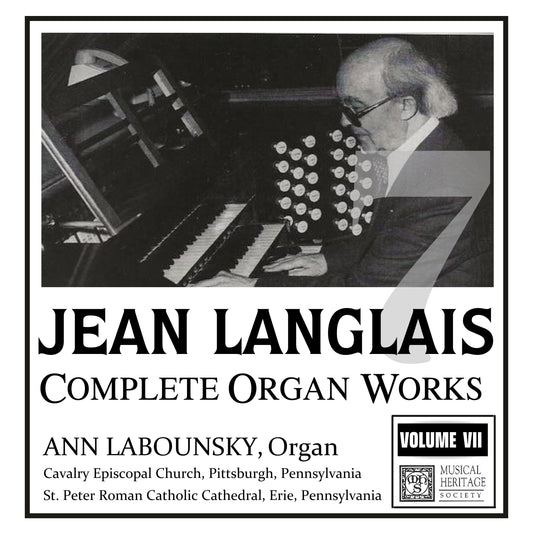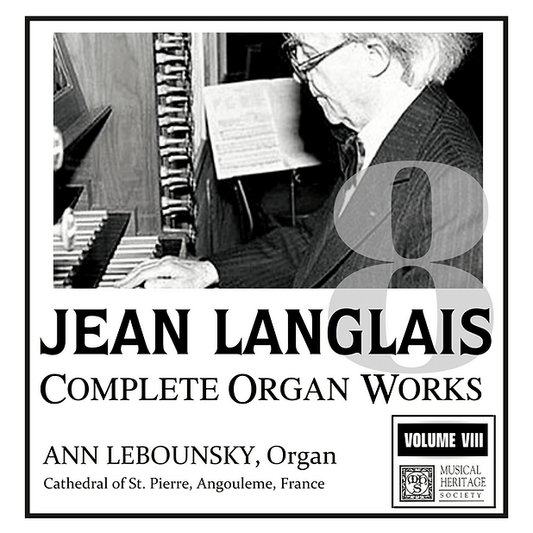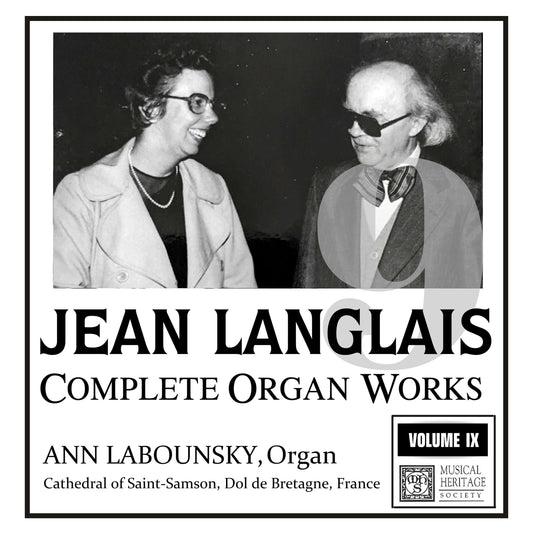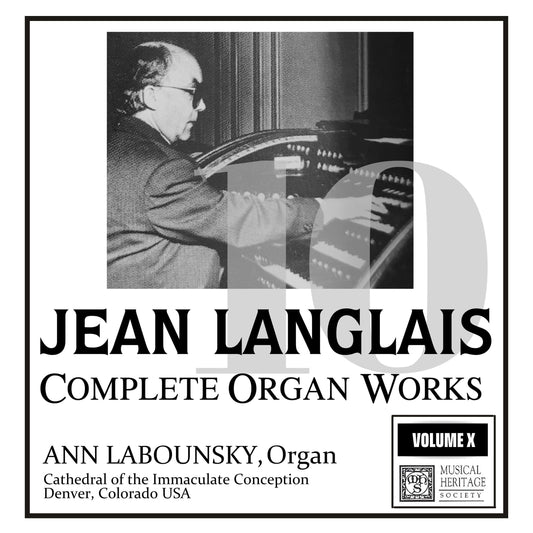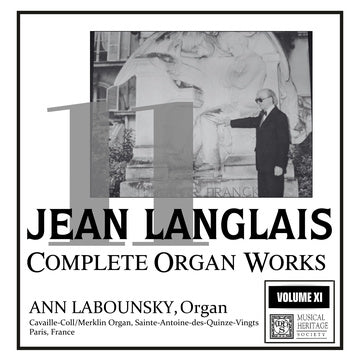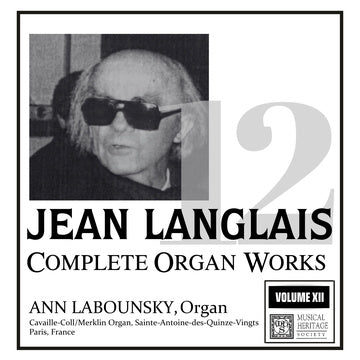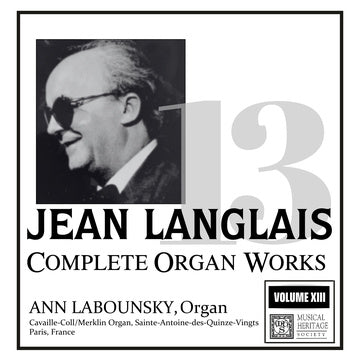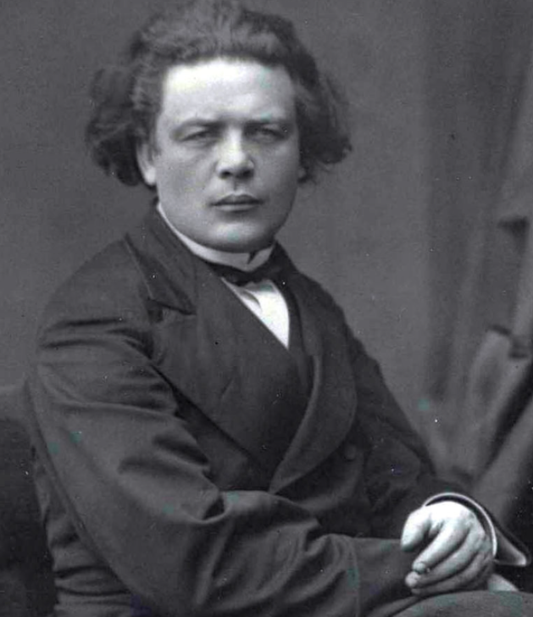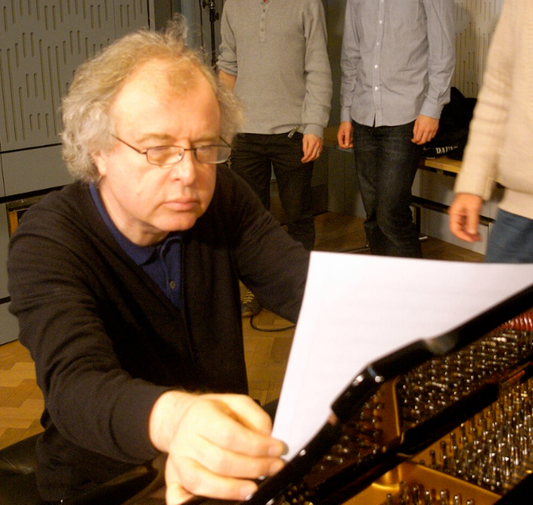Collection: JEAN LANGLAIS (1907 – 1991)
Jean Langlais (February 15, 1907 – May 8, 1991) was one of the most significant and prolific French composers, organists, and improvisers of the 20th century. Blind from the age of two, he overcame immense personal challenges to become a leading figure in the world of sacred music, renowned for his deeply expressive compositions, brilliant improvisational skills, and influential teaching career. His long tenure at the prestigious organ loft of the Sainte-Clotilde Basilica in Paris placed him in the direct lineage of César Franck and Charles Tournemire, traditions he both honored and extended with his own unique musical voice.
Born in La Fontenelle, Brittany, Langlais lost his sight due to scarlet fever. His innate musicality became apparent early, and he was sent to the Institut National des Jeunes Aveugles (National Institute for Blind Youth) in Paris. There, he received an exceptional musical education, learning Braille music notation and studying organ with the renowned blind organist André Marchal. Marchal recognized his prodigious talent and encouraged him to pursue further studies at the Paris Conservatoire.
At the Conservatoire, Langlais excelled, studying composition with Marcel Dupré (also a legendary organist-composer) and Paul Dukas (composer of The Sorcerer's Apprentice). He absorbed the rigorous French conservatory training while also drawing inspiration from Gregorian chant, the rich harmonies of his teachers, and the folk melodies of his native Brittany, which would often subtly permeate his compositions. His skills as an improviser, a crucial aspect of the French organ tradition, were honed during these formative years.
After graduating with premier prix in organ and improvisation, Langlais embarked on a multifaceted career. He began teaching at his alma mater, the INJA, a position he held for decades. He also established himself as a concert organist, gaining international acclaim through numerous tours, particularly in the United States, where he became a frequent and beloved visitor, performing recitals and conducting masterclasses.
The pivotal moment in his liturgical career came in 1945 when he was appointed titular organist at Sainte-Clotilde Basilica in Paris. He succeeded Ermend Bonnal, who had briefly held the post after the death of Charles Tournemire. This appointment placed Langlais at the helm of one of the most significant organs (built by Cavaillé-Coll) and organ lofts in France, inheriting the mantle of Franck and Tournemire. He would hold this prestigious post for 42 years, until 1987, composing, improvising, and playing for services, becoming synonymous with the basilica's musical life.
Langlais's compositional output is vast, encompassing over 250 opus numbers, primarily centered on the organ and sacred choral music. His musical language is distinctive, characterized by a foundation in modality often derived from Gregorian chant, complex harmonies that blend consonance with sharp dissonance, rhythmic vitality, and a profound spiritual depth. While influenced by the impressionism of his predecessors and the Neoclassicism prevalent in the mid-20th century, his style remained deeply personal and often highly expressive, capable of conveying moods ranging from mystical contemplation and serene beauty to ecstatic joy and dramatic intensity.
His organ works include suites (Suite Médiévale, Suite Française), triptychs (Poèmes évangéliques, Trois Paraphrases Grégoriennes), collections of shorter pieces (Neuf Pièces, Vingt-quatre pièces pour harmonium ou orgue), symphonies (Symphony No. 1), and concertos. Iconic individual pieces like Fête, Hymne d'actions de grâces "Te Deum", and Incantation pour un jour Saint are staples of the repertoire. He also composed significant choral works, including masses (Missa Salve Regina, Missa Solemnis "Orbis Factor") and motets, often employing the organ in dialogue with the voices.
As a teacher at both the INJA and later the Schola Cantorum in Paris, Langlais influenced generations of organists from around the world. His blindness never hindered his ability to teach effectively, relying on his acute hearing and deep musical understanding.
Jean Langlais continued composing and performing into his later years, remaining a vital force in the organ world. He died in Paris in 1991, leaving behind a monumental legacy as a composer whose music continues to resonate in churches and concert halls, an inspiring testament to the power of faith, determination, and the human spirit to create profound beauty against all odds.


